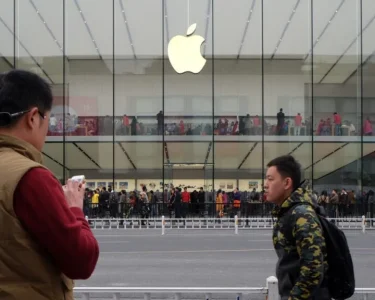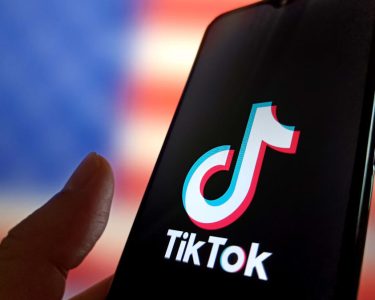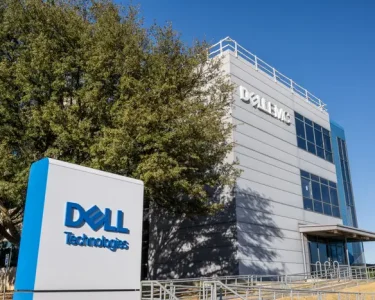AI age: As artificial intelligence (AI) reshapes industries at breakneck speed, one key question stands out for creators, businesses, and marketers: What type of content will remain valuable in this new era of automation and machine learning? A prominent CEO recently weighed in on the future of content in the digital age, highlighting what will stand the test of time and outlast AI-generated content. According to them, not all content will survive; in fact, only certain types of content will truly thrive.

The AI Revolution: A Double-Edged Sword for Content Creation
AI tools have exploded onto the scene, offering remarkable capabilities to generate text, visuals, music, and even video. For many businesses and creators, this has ushered in an era of unprecedented productivity, as AI can churn out volumes of content in minutes. But as the floodgates of AI-generated material open, so do concerns about the oversaturation of low-quality content. As the CEO points out, this shift is transforming the content landscape.
It’s no longer about volume but about value. Simply creating content will not cut it anymore. Instead, the content that will shine in this new era is content that is deeply human.
Why Human-Centered Content Matters in the Age of AI
At its core, AI lacks the one quality that has historically made content meaningful: human connection. According to the CEO, the key to surviving and thriving in the age of AI lies in producing content that only humans can create. This means that content filled with emotional depth, personal experiences, and original insights will be the gold standard in the AI age. AI can mimic tone and style, but it cannot replicate the nuances of human experiences, creativity, or empathy.
Human-centered content taps into the emotional intelligence that AI lacks. Storytelling, personal anecdotes, and thought leadership are prime examples of the types of content that will remain relevant and resonate with audiences. Whether it’s a blog post, podcast, or video, authenticity will be the deciding factor for the future.
High-Value Content Will Outlast AI Automation
There’s a shift happening in the way people consume content. The age of superficial, keyword-stuffed articles is quickly fading, while rich, informative, and well-researched pieces are gaining traction. As more AI tools are used to automate content creation, the demand for high-quality, human-driven content is growing.
According to the CEO, content that provides tangible value will be irreplaceable. This includes in-depth guides, expert opinions, case studies, and long-form content that delves deep into specific topics. While AI is great at pulling together information, it struggles to provide the nuance that comes from experience, making human expertise crucial.
The Importance of Storytelling
Storytelling is one of the most potent tools humans have for engaging with one another, and it’s something AI has yet to master. The CEO stressed that stories are integral to human connection, creating emotional bonds that build trust between brands and audiences. Unlike AI-generated articles that may offer useful data or facts, stories allow us to relate, reflect, and feel.
Brands and creators who can tell compelling stories, especially ones grounded in personal experience, will stay ahead of the curve. Whether it’s the origin story of a business, customer testimonials, or narrative-driven marketing campaigns, storytelling fosters genuine connections that go beyond the surface level.
How AI Can Complement, Not Replace, Human Content Creators
AI isn’t here to completely take over; instead, it can serve as a powerful tool to complement human creativity. The CEO notes that leveraging AI for data analysis, trend spotting, and content distribution will free up more time for creators to focus on crafting the kind of content that AI can’t produce—human-driven stories, opinions, and insights.
Rather than competing with AI, creators can work alongside these tools to enhance their content. For example, AI can help optimize content for SEO, suggest ideas, or handle repetitive tasks, but the core message and emotional appeal will always require a human touch.
What This Means for Businesses and Marketers
For businesses, this shift means prioritizing quality over quantity. The CEO advises brands to focus on building content that reflects their unique voice and connects on an emotional level with their audience. Brands that prioritize quick wins through AI-generated, low-effort content risk blending into the noise, while those that invest in valuable, human-centered content will build trust and lasting relationships with their customers.
This approach will require marketers to rethink their strategies. While AI can be a great asset for keyword research and content planning, the true value will come from integrating personal stories, expert advice, and unique perspectives into the content mix.
The Future of Content Creation: A Human and AI Partnership
The CEO’s final takeaway is that while AI will revolutionize content creation, it will not replace human creativity. The future of content is a partnership between humans and machines. AI can handle the heavy lifting, but the spark of originality, empathy, and storytelling will come from human creators. As businesses move forward into this new age, those who embrace both technology and the human touch will emerge as the leaders of tomorrow.
In this rapidly evolving landscape, the only content that will survive—and thrive—is content with a heartbeat. It’s the content that makes you feel, think, and engage on a deeper level. AI may help distribute and optimize, but only human-centered content will create meaningful, lasting connections with audiences.
If you’re looking to stay ahead in the age of AI, focusing on authenticity, emotional depth, and storytelling is the way forward. It’s not just about what you create, but how it resonates. To learn more about adapting your content strategy in the AI era, head over to Digital Digest for expert insights.




